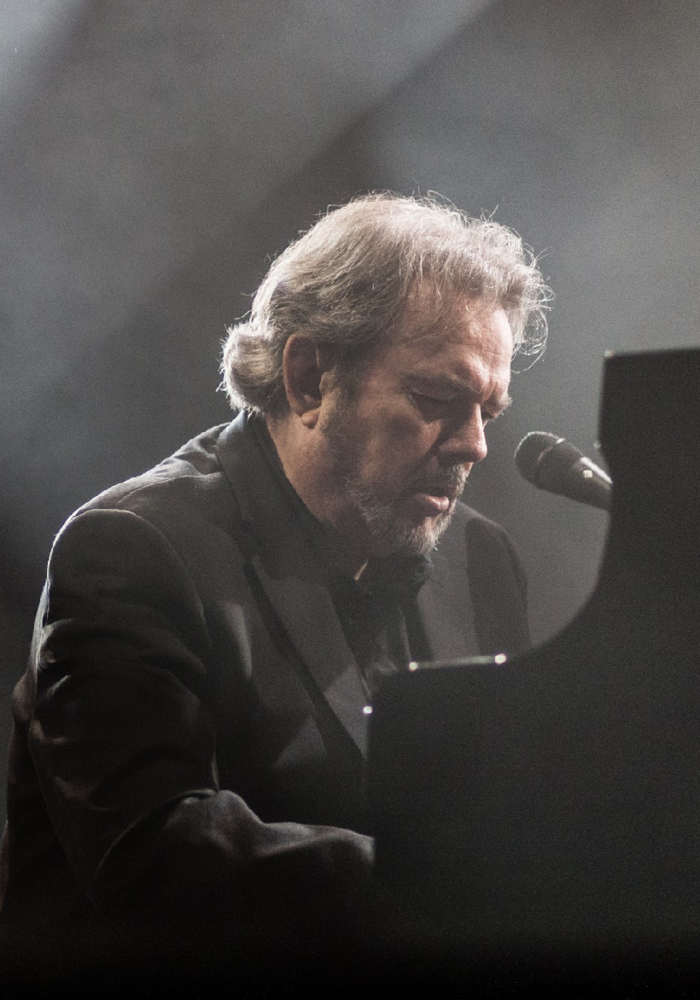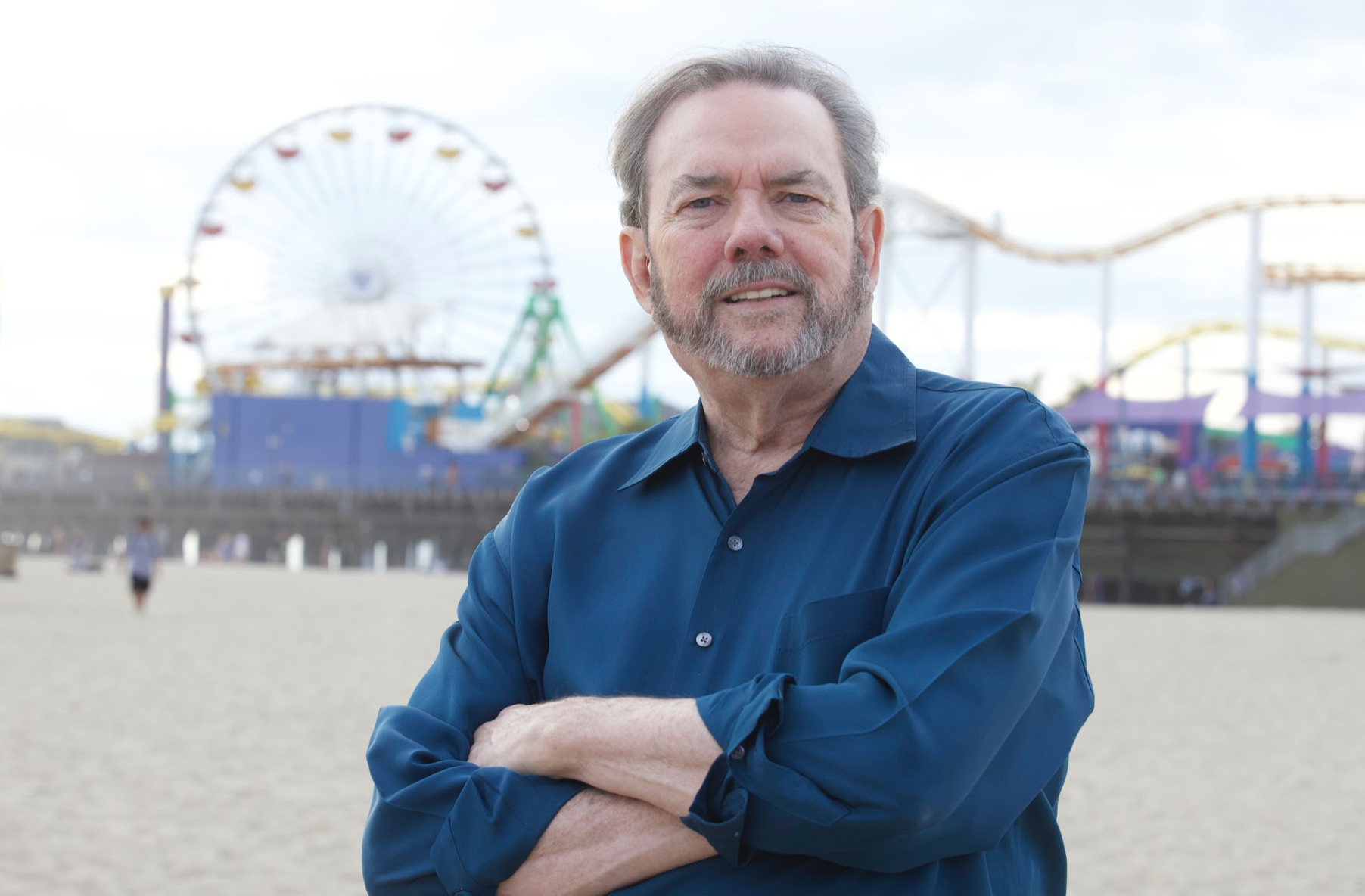From Glen Campbell’s Galveston, By The Time I Get To Phoenix and Wichita Lineman, to Richard Harris’s MacArthur Park and numerous hits for the likes of Art Garfunkel, The Supremes, Michael Feinstein and many others, Jimmy Webb has written some of the most beloved entries to the Great American Songbook. Now, as he prepares to tour for the first time since the pandemic, he sits down for a chat with Headliner about his journey from local church pianist to becoming one of the greatest songwriters of the past century…
“Any day above ground is a good day,” Jimmy Webb chuckles as we greet him over Zoom at his home in Long Island. The legendary songwriter is in good spirits and clearly looking forward to performing again, with numerous dates confirmed on both sides of the pond.
“America is my home but I still get homesick for England,” he says, “I’m an unashamed Anglophile and have always thought of it as my second home.”
With an arsenal of hits at his disposal that would take most hit songwriters several lifetimes over to amass, it’s little wonder he’s looking forward to getting back in the saddle. Name any iconic American rock or pop act from the past 60-plus years and Webb has likely had some involvement in their oeuvre. He could perform a different set every night of the tour and every single one would still be a cast iron crowd-pleaser.
Perhaps unsurprisingly, his prodigious musical talents began to reveal themselves at a very young age, becoming the pianist for his local church at the age of 12, where his dad was a Baptist minister, before quickly having his head turned by the allure of Elvis Presley and rock ‘n’ roll. This collision of worlds was pivotal in inspiring the young Webb not just to write songs, but to pursue the craft as a calling.
“Around that time I wrote a song called It’s Someone Else, and a couple of decades later that song was recorded by Art Garfunkel – I was already on my game by the time I was 12 years old,” he says. “But that was also inspired by feelings of social inadequacy and that rush of hormones that usually hits us all around that age. All of a sudden girls begin to mean something; we’re not quite sure what it is but we know it’s big! I found I could get a bit of attention – they did not laugh when I sat down to play the piano. I wasn’t much at football – my brother was a star athlete – but I could manage to work my way through most of the songs I heard on the radio.
"I had this diabolically clever ear; I could seize these tunes out of thin air, and I was quite popular at school, playing the current hits. In the summer I’d go out with my father on the evangelical tours that we took and that’s a kind of show business – I don’t want to shock anyone [laughs] – but it really was. It was like, have a good sermon, a good song, then everybody is happy and you’re doing it for Jesus. But it was show business in its purest form.”
Despite his obvious musical skill, Webb’s dreams of ‘making it’ didn’t materialise quite as readily as he had anticipated.
“By the time I was 17 I was on my own in Hollywood and I was a self-proclaimed songwriter,” he elaborates. “I had a little contract at Motown Records, and I was working with The Supremes a little bit. I thought I was on top of the world, but I was making less than $100 a week, and it was a little bit rough. Finding accommodation and three meals a day was out of the question.
"I had a lot of songs though - about 50 pretty damn good ones. I knew Dick Glasser who had produced the Everly Brothers, so I worked on a few things that went on one of their records. They were still a big deal, but absolutely nothing happened afterwards. The phone didn’t ring. That’s kind of a tough thing to wake up to in the morning when you’ve staked your whole existence on the idea you are going to do this for a living.”
Webb’s big break would come in the form of a partnership that would in many ways define his career. While working with singer songwriter Johnny Rivers, a song that he had written wound up in the hands of one of America’s most revered musicians and country music stars. The song was By The Time I Get To Phoenix and the artist was a certain Glen Campbell.
“That’s when the phone started ringing,” Webb laughs. “Once you’ve tasted that you’re not going back to playing the piano at the church on a Sunday. “It was a transformation. One year, I didn’t turn in any tax – if you made less than $600 a year you didn’t have to pay any - then a year later… well, it would be in poor taste to talk about how much I was making, but it was almost disgraceful.
"I remember filing my first tax return, and I phoned my father and said ‘dad, you were wrong’! And it was really quiet at the other end of the phone because he had never seen that much money before in his life. To him it was a revelation. I think he was sincerely trying to keep me away from something he thought might hurt me really badly. It was like he'd been slapped in the face with a big cod. He couldn’t believe this straight C student, a loser, had actually done this.”




